Six details to see why everyone wants to see China at G20 Summit?
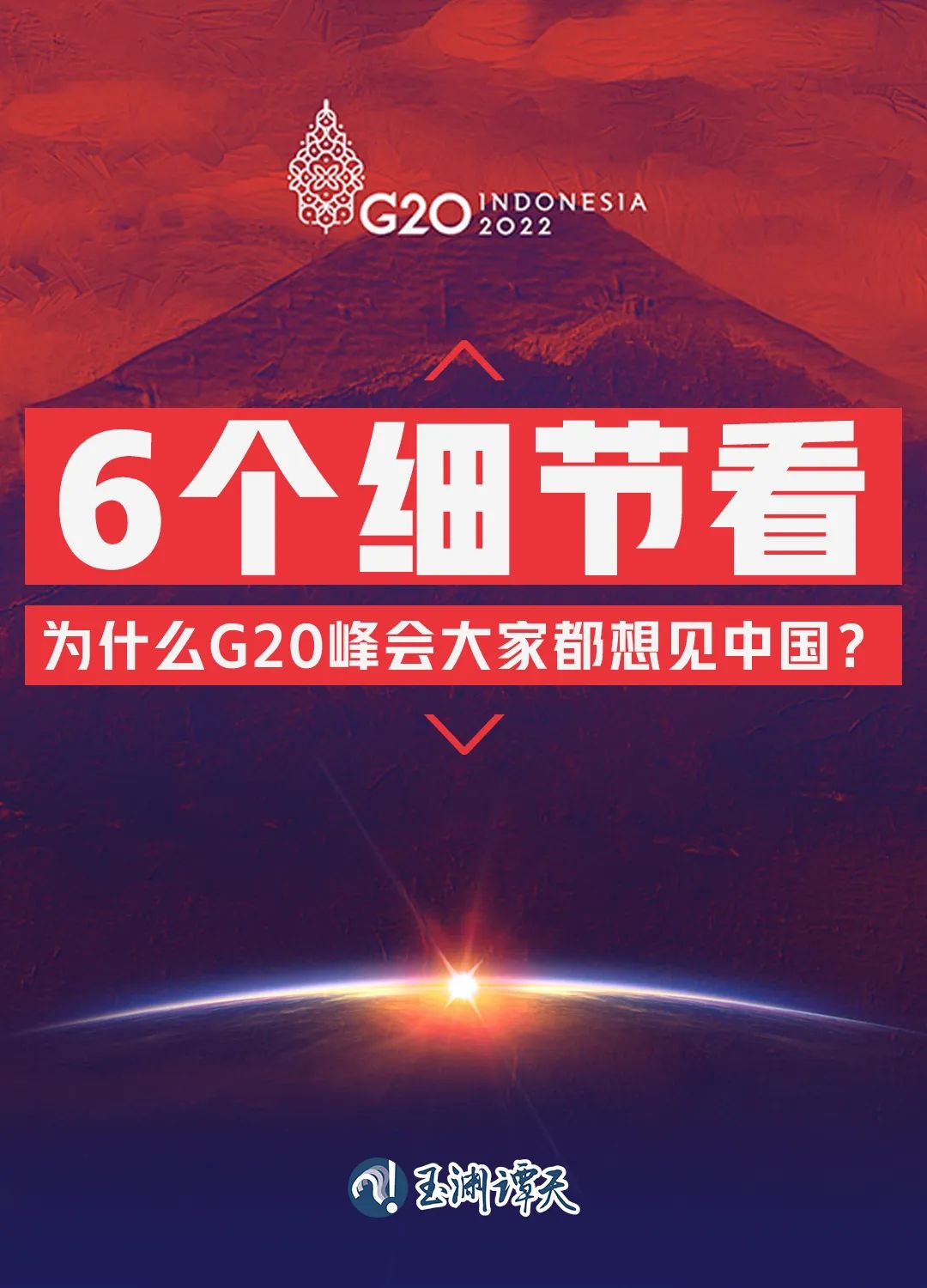
Recently, Bali, Indonesia has been particularly lively, and it is rare for the leaders of the world’s major economies to reunite face to face here.
In today’s world, crises are superimposed and all countries have difficulties. Everyone’s urgency can also be seen from the intensive activities. During the G20 Summit, the participating countries arranged a number of bilateral and multilateral meetings. Communication, very frequent.
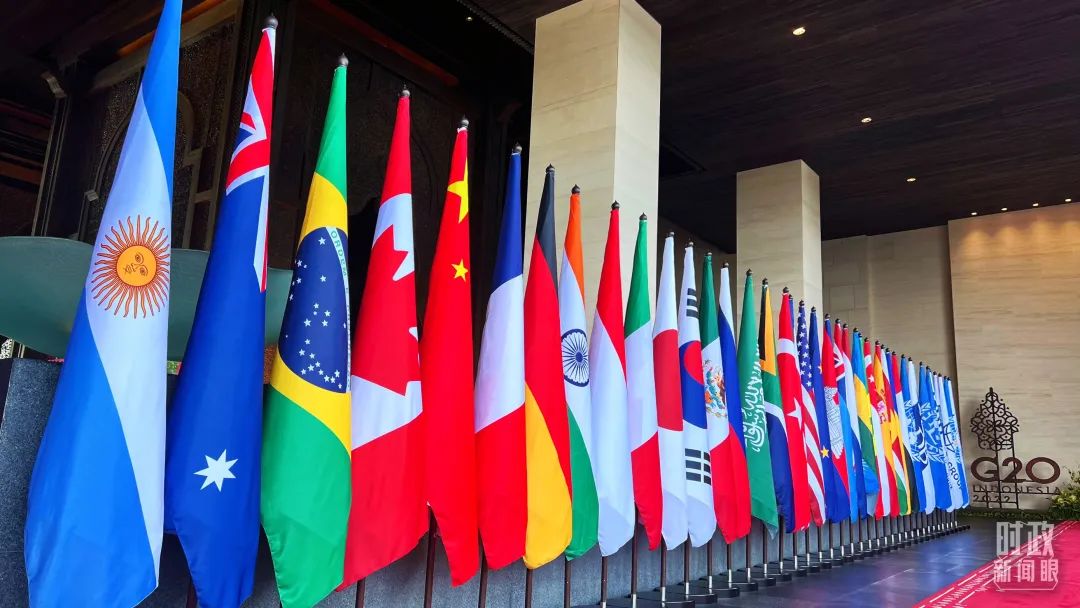
Among them, China’s leaders are particularly busy.
In addition to attending the G20 Summit, the Chairman of the Supreme Leader held bilateral meetings with leaders of many countries during the meeting.
In fact, the leaders of some countries, as soon as they landed in Indonesia, said in an interview that they would meet with China.
Why did the international community expect China’s voice so much? Master Tan found the answer from six details in the meeting.

Let’s take a look first. In Bali, which countries’ leaders met with China:
US President Biden
French President Macron
Dutch Prime Minister Rutte
South African President Ramaphosa
Australian Prime Minister Albanese
South Korean President Yin Xiyue
Senegalese President Salle
Argentine President Fernandez
Spanish Prime Minister Sanchez
Indonesian President Joko
Italian Prime Minister meloni
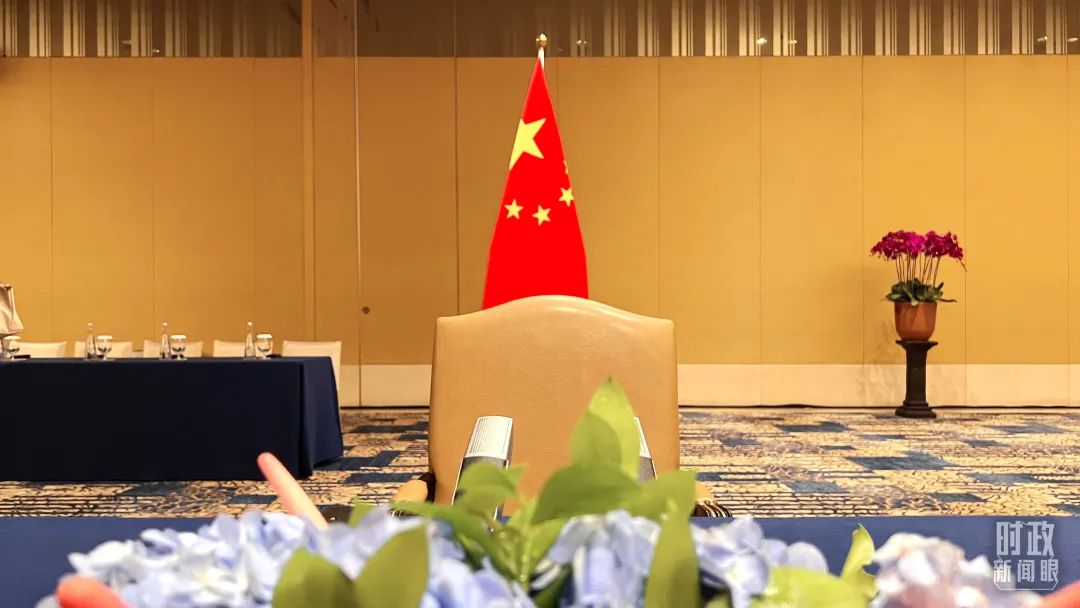
The Chairman of the Supreme Leader met with many foreign leaders here.
These countries are very representative. Geographically, it covers Europe, North America, South America, Africa, Oceania and Asia. From the distance, there are Argentina, the country farthest from China in the world, and South Korea, a neighboring country across the sea from China.
Judging from the development stage, there are the United States, the world’s largest economy, and Senegal, one of the least developed countries in the world. Each country has different development stages and faces different problems, and they all want to talk to China.
Why? The answer is hidden in the speech of the Chairman of the Supreme Leader at the G20 Summit.
The common development of all countries is the real development. World prosperity and stability cannot be based on the fact that the poor get poorer and the rich get richer. Every country wants to live a good life, and modernization is not the privilege of any country. The leading countries should sincerely help other countries develop and provide more global public goods. If a big country wants to be a big country, it should make every effort for global development.
In the face of the global economic development dilemma, if you want to break the situation, big countries have to take responsibility.
It is not easy to take responsibility. Take this G20 Summit as an example. In order to let countries discuss the critical problems of economic recovery, Indonesian media appealed to the leaders of the participating countries before the meeting, "Please don’t just quarrel when you come to Bali", and then directly named the G7 countries including the United States.
However, this effort was failed on the second day of the conference — — Some countries "pulled a small circle" to discuss the missile explosion in Poland, and pulled the topic to camp confrontation, which also affected the agenda of the G20 summit.
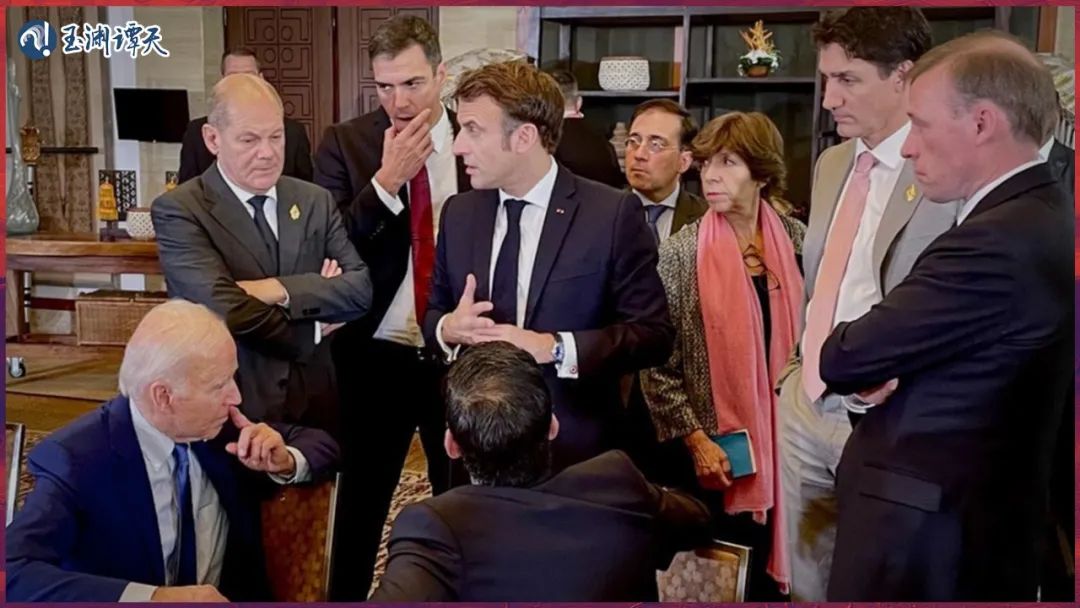
Leaders of G7 countries arranged an emergency meeting on missile explosion in Poland.
Enlarging regional issues by intensifying ideological confrontation, but avoiding talking about the common problems of the wider international community, is the behavior of some countries.
In contrast, China said this:
Food and energy security are the most urgent challenges in the field of global development.
We must resolutely oppose the politicization, instrumentalization and weaponization of food and energy issues, cancel unilateral sanctions and lift restrictions on related scientific and technological cooperation.
Everyone knows who he is talking about. Whether it is the most serious food and energy security problem or the most prominent inflation problem in the global economy, everyone knows who is the initiator.
China is concerned about the food crisis and has also provided a solution to this crisis.
Just a few days ago, an international forum on "Hybrid Rice Foreign Aid and World Food Security" was held. Since 1979, China’s hybrid rice has spread to nearly 70 countries on five continents, providing a Chinese solution to the food crisis for developing countries. The rice bowl is related to development and safety.
The world needs the attitude and voice to solve these problems.

Many countries met with China are developed countries.
What role should developed countries play in the current global issues? The Chairman of the Supreme Leader made it clear at the G20 Summit:
It is necessary to curb global inflation and resolve systemic economic and financial risks, especially in developed economies, to reduce the negative spillover effect of monetary policy adjustment and stabilize debt at a sustainable level.
Developed countries should bear great responsibility for many problems in the current world economy.
The negative spillover effect of monetary policy adjustment in developed countries triggered the crisis, but now, developed countries are facing the situation of "getting burned".
The inflation level of several developed countries in the G20 has mostly hit a new high in decades. In order to curb inflation, developed countries have started to raise interest rates substantially, which has triggered a global "interest rate hike".
As a result, the world economy has fallen into the most serious economic slowdown. However, in this context, it never rains but it pours.
The interest rate hike has caused the debt service cost of many countries to soar, which has also triggered the risk of debt crisis. The debt service burden of middle-income developing countries has been at the highest level in 30 years.
The world economy is facing the risk of recession, and everyone is having a hard time, with developing countries bearing the brunt. Crisis superposition, the supreme leader chairman put forward China’s solution:
IMF should speed up the process of lending special drawing rights to low-income countries. International financial institutions and commercial creditors, as the main creditors of developing countries, should participate in debt relief actions for developing countries.
In fact, as early as the G20 Summit in 2020, a preliminary initiative to alleviate the debt dilemma of low-income countries was formed, but developed countries were not active.
China, on the other hand, has implemented the largest amount of debt relief among G20 members, and the total amount of debt relief is the largest among G20 members, providing an important safety buffer for the global debt crisis.
The fundamental means to solve these problems is development.
However, developed countries have been experiencing low economic growth for many years. What these countries care about is "more cakes".
China, on the other hand, has been making a big cake. From 2013 to 2021, the average contribution rate of China to world economic growth was 38.6%, which exceeded the sum of the contribution rates of G7 countries.
Developed countries are not only unable to solve their own problems, but also unable to solve their own development problems.
China, which put forward the global development initiative, has become one of the few countries that can come up with solutions to development problems. Countries trapped in development will naturally look to China.

During the G20 summit, there was a bilateral meeting that was particularly worth talking about. That is the bilateral meeting between the leaders of China and South Korea. After three years, the leaders of China and South Korea met again.
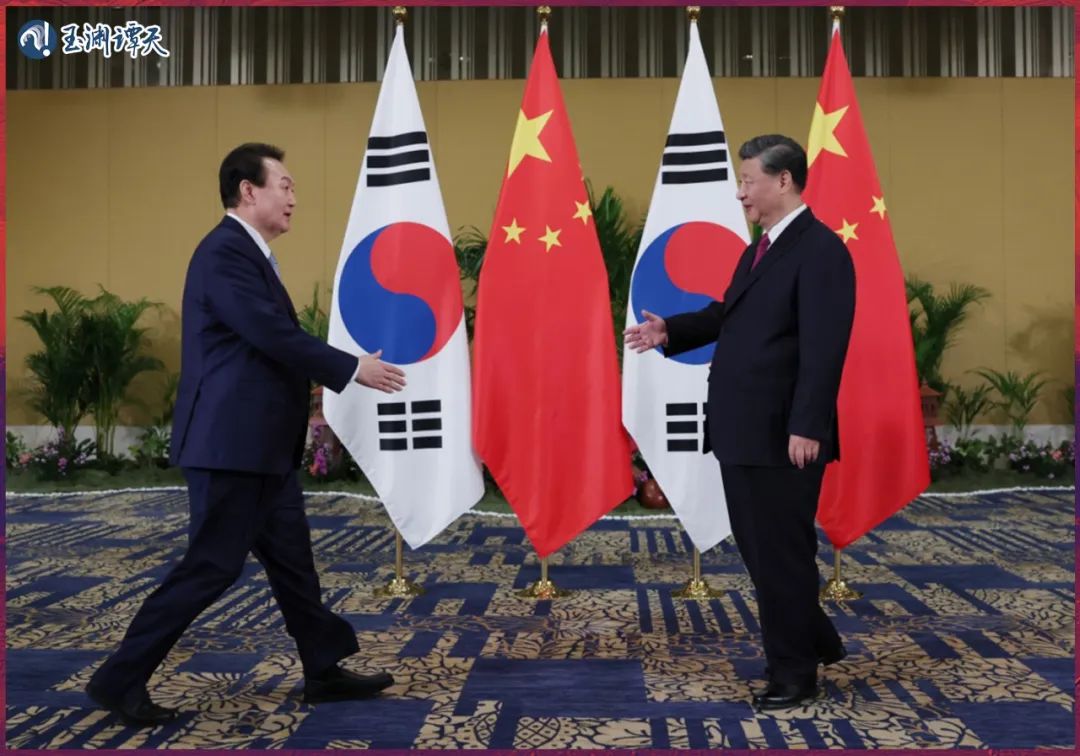
Chinese and South Korean leaders meet
The regular press conference of the Ministry of Foreign Affairs on the 15th also specifically explained this bilateral meeting: this is the first official meeting between the two heads of state, which is of great significance.
South Korea is one of the few developed countries in Asia, and the topics discussed by China and South Korea are also very special. Master Tan noticed that there was such a word in the news released after the meeting — — High-tech manufacturing.
The significance of high-tech manufacturing to the Korean economy is particularly different. Shortly before this meeting, South Korea’s Ministry of Finance issued a warning that exports, as the main driving force of South Korea’s economy, were in a downturn. Under this background, South Korea’s economic growth may slow down.
The semiconductor industry accounts for nearly 20% of South Korea’s total exports. In July this year, South Korea’s chip exports fell by 22.7%, the first decline in the past three years.
The most direct reason is American policy — — The Chip and Science Act of the United States wooed Korean companies to set up factories in the United States through subsidies, with the intention of "hollowing out" the Korean chip industry.
Not only that, the United States also set up a "four-way alliance for chips", asking South Korea and other allies to follow its export restrictions to China, with the intention of forcing South Korea to decouple from China in the chip industry chain. China is the largest chip market in South Korea. According to the survey data, South Korea’s chip exports to China have increased nearly 13 times in the past 20 years.
The United States suppressed South Korea’s chip manufacturing capacity on the one hand and stuck South Korea’s chip exports on the other. This kind of behavior of artificially cutting off the supply chain of the industrial chain has also put great pressure on the Korean economy.
How to solve the problem of industrial chain supply chain is one of the most talked-about questions by the Chairman of the Supreme Leader on various occasions in G20. At the G20 Summit, the Chairman of the Supreme Leader said this:
Countries should respect each other, seek common ground while reserving differences, coexist peacefully, promote the construction of an open world economy, and should not beggar their neighbors and build a "small courtyard and high wall""Engage in a closed and exclusive "small circle."
Who is beggar-thy-neighbour? Who is building a "small courtyard high wall"? Everyone knows it. How to choose, in the face of the President of South Korea, the Chairman of the Supreme Leader made it very clear:
Jointly safeguard the international free trade system, ensure the safety, stability and smoothness of the global industrial chain supply chain, and oppose the politicization and pan-security of economic cooperation.
Similar expressions also appeared in the exchanges between Chinese and Dutch leaders.
The Chairman of the Supreme Leader mentioned that China and the Netherlands should oppose the politicization of economic and trade issues and maintain the stability of the global industrial chain supply chain. Dutch Prime Minister Ruyt also expressed his willingness to expand dialogue and cooperation with China in areas such as innovation.
The Netherlands is also an important link in the global chip industry chain — — Mask aligner giant ASML (ASML) is a Dutch company. Earlier, the United States also blocked the mask aligner deal between the Netherlands and China.
Whether countries choose to decouple or connect, the exchange of leaders is the best response.

The meeting between Chinese and Australian leaders at G20 was six years later.
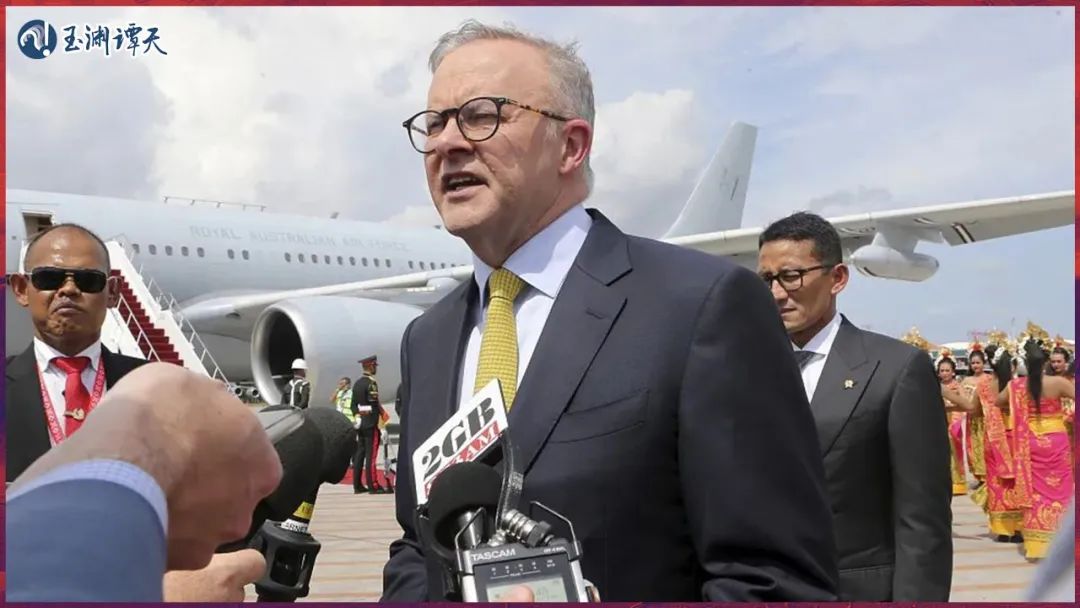
Australian Prime Minister Albanese arrived in Bali on November 14th and was interviewed by the media at the airport.
As soon as the plane landed, Australian Prime Minister Albanese released the idea of meeting China’s leaders to the media all over the world. Look at three sentences mentioned by Albanese to the media:
With goodwill
No preconditions.
Looking forward to constructive dialogue.
These three sentences have touched the root of the problems in China-Australia relations in recent years.
China-Australia relations have long been at the forefront of China’s relations with developed countries. The problem appeared after Australia stopped taking the road of independent development and actively or passively joined the "small circle".
The "Quad(Quadrilateral Security Dialogue)" mechanism of the United States, Japan, India and Australia, the trilateral security partnership between the United States, Britain and Australia, and the "2+2" talks between the United States and Australia, one after another, each has Australia. Jumping up and down around China, it is the cooperation between the two countries that suffers, and it is yourself that suffers.
In the past two years, many Australian officials have called on China to communicate with China, but China didn’t answer the phone. This time, we finally had an opportunity to meet, and Australian officials kept releasing signals to improve relations with China before departure.
This bilateral meeting, which Australia has been waiting for for six years, is 12 minutes longer than originally planned. China has felt the sincerity of the Australian side. During the meeting, the Chairman of the Supreme Leader said:
China attaches importance to Australia’s recent willingness to improve and develop bilateral relations.
Chairman of the Supreme Leader also mentioned:
There has never been a fundamental conflict of interest between China and Australia. Some are the traditional friendship between the two peoples and the highly complementary economic structure, and some are the common demands of safeguarding the purposes and principles of the UN Charter.
As both important countries in the Asia-Pacific region, China and Australia should improve, maintain and develop bilateral relations, which is not only in the fundamental interests of the two peoples, but also conducive to promoting peace and development in the Asia-Pacific region and the world.
Two sentences, two meanings.
On the first floor, China is a big market and a major trading partner of more than 140 countries and regions. At this time of global economic difficulties, everyone wants to cooperate with China precisely because of complementarity.
The second layer, Australia, is an "important" country, but the key is whether to take the road of its own development independently to unite and cooperate, or to follow others’ footsteps to confront competition step by step.
Just as the Chairman of the Supreme Leader quoted an Indonesian proverb: "Sugarcane grows in the same hole and citronella grows in clusters".
Whether separatist confrontation can go on or not has been proved by practical actions in Australia.

China has always shared the same fate and development with developing countries. Among the developing China countries that met with China, one was very special — — Senegal.
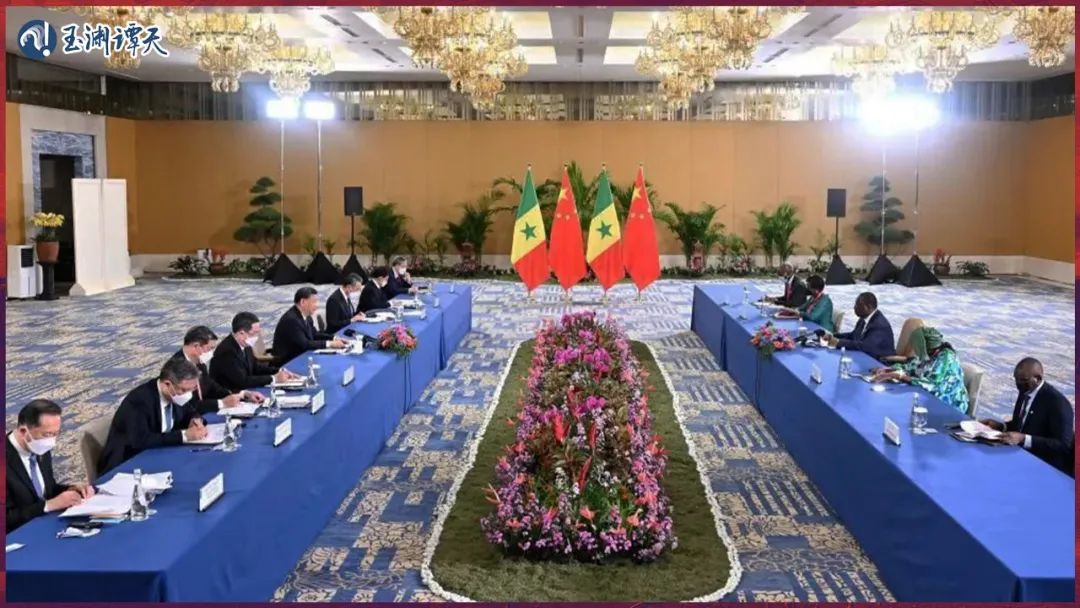
China-Serbia leaders meet
When communicating with the Chairman of the Supreme Leader, Senegalese President Salle expressed his gratitude:
Thank China for its valuable help to Serbia and African countries, and for being the first to publicly support the AU’s initiative to join the G20.
The reason is that in his speech at the G20 Summit, the Chairman of the Supreme Leader proposed to the participating members:China supports the African Union’s accession to the G20.
Senegalese President Salle is the current rotating chairman of the African Union. The African region is an unbalanced point that global governance urgently needs to break through.
As a whole, Africa is the eighth largest economy in the world, but Africa still lacks the right to speak in the world economy. In the G20, Africa has only one representative, South Africa.
What’s more, as one of the most vulnerable economies, countries in Africa are also the forefront of the impact of the world economic situation. At present, these countries are facing the dual dilemma of weak development foundation and repression by the United States and Western countries.
Take Senegal itself.
Not long ago, Senegal discovered a new oil and gas field and plans to exploit it next year — — These resources will provide new impetus for Senegal’s economic development.
Some western media have smeared it as "a suffocating new pollution source that causes global warming".
At the same time, at the United Nations Climate Change Conference being held this year, developed countries are still evading relevant responsibilities — — More than a decade ago, developed countries promised to provide at least $100 billion a year to help developing countries cope with climate change. Today, this fund has not been fully fulfilled.
This year, the President of Senegal attended the G20 Summit, and part of his appeal was to hold developed countries accountable for their commitments.
At the beginning of the meeting between China and Serbia, the consensus was that the two sides should go hand in hand on the road of development and revitalization. As a pioneer of economic transformation and upgrading in developing countries, China’s experience sharing in industrialization is a feasible and credible reference and help for Senegal.
Seen from the framework of G20, G20 has completed self-innovation by absorbing and developing China countries.
During the two financial crises in 1990s and 2008, G20 successively established a meeting mechanism of finance ministers and central bank governors and a summit mechanism of leaders, which included the growing emerging economies in the governance map of the global economy. In 2016, China, as the presidency, listed the "digital economy" in the G20′ s blueprint for innovative growth for the first time, giving an important plan for global economic recovery.
As the largest developing country, China is not only providing development samples for other developing countries, but also helping them to expand their discourse space in global governance.

The G20 Summit is coming to an end, and the Chairman of the Supreme Leader held talks with Indonesian Prime Minister Joko.
Before the talks, the Supreme Leader and Zoco first watched the Jakarta-Bandung High-speed Railway test run together by video. This project will shorten the travel time from Jakarta to Bandung from more than three hours to 40 minutes.
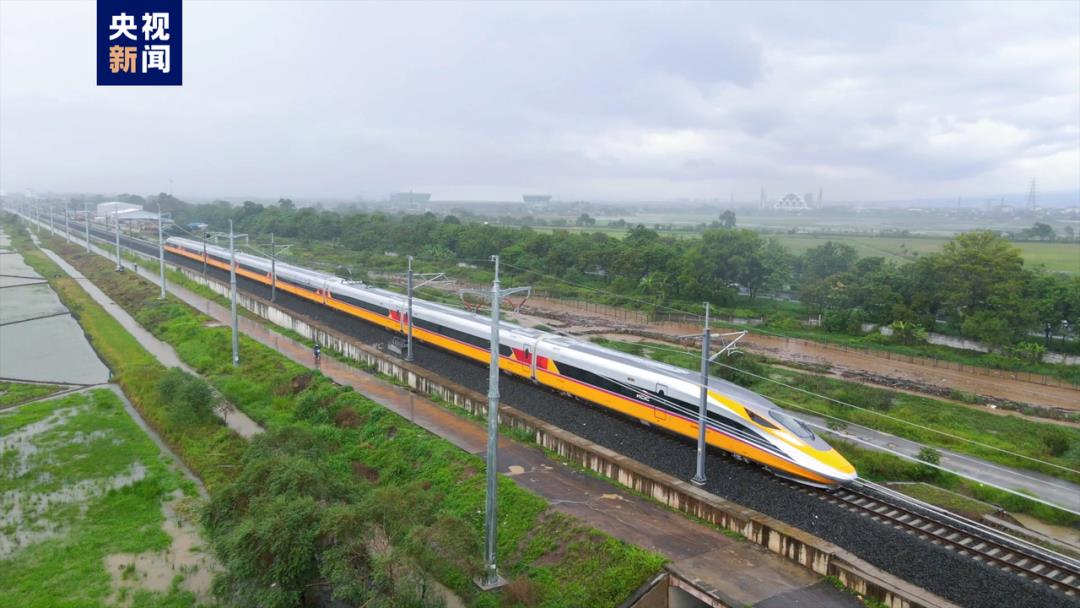
The trial operation of Jakarta-Bandung High-speed Railway, which was jointly built by China and Indonesia, was a complete success.
Because of Jakarta-Bandung High-speed Railway, Indonesia has also become the first ASEAN country with high-speed rail. The "first one" is worthy of pride, but it is also embarrassing.
Like most developing countries and least developed countries, Indonesia has experienced western colonial rule, but the first industrialized western countries have never helped these developing countries build a modern railway.
It’s not that the West has not helped other countries, such as Argentina. However, developing countries such as Argentina have to sell their national resources or be forced to privatize their national pillar industries when receiving assistance from western countries, and they are infiltrated and controlled by the aid countries. On the contrary, there are many lessons from the past that seriously weaken the country’s industrialization ability.
When the "leading" developed countries can’t provide new public goods for the world, the "Belt and Road Initiative" is exactly what China provides to the world.
Argentina, whose development was once in the forefront of the world, has now become a representative who is difficult to get out of the development dilemma. The solution that Argentina is looking for is also the "Belt and Road".
At the G20 Summit, Argentine President Fernandez was hospitalized for health problems, but he still insisted on meeting with the Chairman of the Supreme Leader.
Shortly before meeting with the Chairman of the Supreme Leader, he personally discussed railway and highway construction projects in several provinces of Argentina with China Railway International Group Co., Ltd.
In cooperation with China’s Belt and Road Initiative, products from Argentina’s grain-producing areas, known as the "granary of the world", can be transported to coastal ports for export by low-cost railway, thus reviving the price advantage in international competition, which will improve Argentina’s trade structure and bring more foreign exchange income. This is a real solid step for Argentina, which has repeatedly faced sovereign debt problems, to get out of the "vicious circle" of debt default, international financing difficulties and stagnant development.
For any country, the core concern is still development.
China’s thinking to solve the development problem lies not only in the immediate benefits, but also in providing public goods to help other countries truly acquire long-term development capabilities.
Next year will be the tenth anniversary of the "Belt and Road Initiative", and there will be more and more common witnesses to the world significance of China’s program.
At the G20 Summit, the Chairman of the Supreme Leader once again asked the question of "What’s wrong with the world? What shall we do?".
This is a problem that every country has to face in this era.
China, has given his own answer.
The road is wide, and it can be controlled.
And what people want, the road can be achieved.